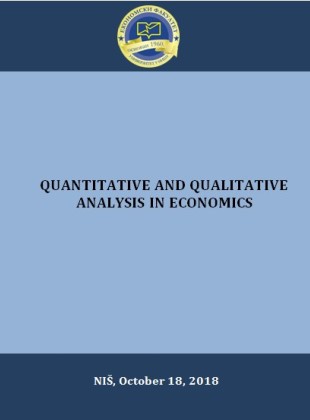QUANTITATIVE AND QUALITATIVE ANALYSIS IN ECONOMICS
TRANSFORMATION OF INSTITUTIONS AS A CHALLENGE OF ECONOMIC DEVELOPMENT IN THE REPUBLIC OF MACEDONIA
Blagoj Gorgievski, Magdalena Stankovska
Abstract: Economic institutions of a society depend on the nature of political institutions and the distribution of political power in the society. The new institutional economics is interested in the social, economic and political institutions that govern everyday life. In this essay, we will discuss that institutions, very broadly defined, are the fundamental cause of economic growth and development. We will also discuss the fact that our state of knowledge does not yet enable us to make specific statements about how institutions can be improved (in order to promote further economic growth). Nevertheless, we can use this framework in several ways. Solving the problem of development will entail the reform of these institutions. Unfortunately, not all aspects of good governance have the same impact on economic growth and for some of them this impact is faster than for some others. The statistical analysis shows that political stability, absence of violence (stb) and the strengthening of law enforcement (law) affect the growth at the same time, but it is not evident for other indicators. Our analysis reveals challenges for those who want to solve the problem of the impact of institutions on the development of Macedonian economy. A better development policy will be brought when we recognize and understand these forces better. Nevertheless, our country has been undergoing political transitions, reforming their institutions, and moving onto more successful paths of economic development.
Keywords: institutions, economic development, governance, reforms
Published: p. 11-19
PDF

